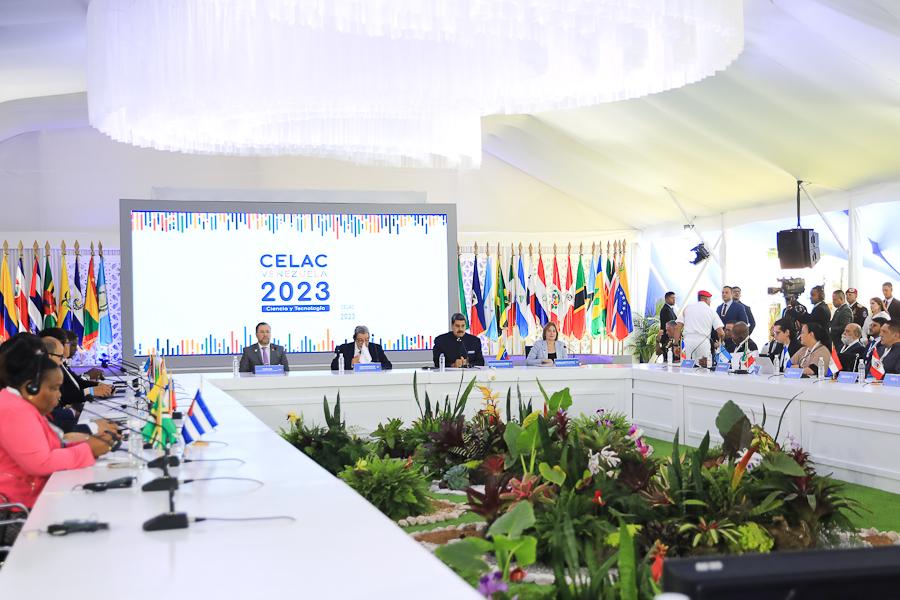The objective of the meeting was to consolidate regional integration and cooperation and promote the exchange of knowledge and scientific activity in order to agree on solutions to common problems.
During the first day, the President of Venezuela Nicolás Maduro proposed to the participants the creation of a Latin American and Caribbean Center for Applied Science and Technology Research for the 33 member countries of CELAC. He stated that the issues to be worked on at the meeting are many, nevertheless, he stressed the need for the proposal, the organizational architecture and the agenda of priority issues to come out of the meeting, so that the center can be founded “sooner rather than later, with the support of all”.
The president pointed out that all the advances will be able to be articulated in the entity, with an agenda of priorities to be established, and stressed that science, technology and applied innovation must be at the forefront of construction projects in Latin America, for the search of solutions to the enormous problems that have arisen as a consequence of climate change. He also called for the building of powerful scientific and knowledge bases and noted that it would be better “if we can build them in a unitary way.”
Maduro said he was sure that “we will have important advances in all matters, if scientists and technologists from Latin America and the Caribbean join their efforts to meet the demands of this 21st century.”
In this regard, the Prime Minister of Saint Vincent and the Grenadines and president pro tempore of CELAC, Ralph Gonsalves, proposed working together and united in science and technology, and pointed out that “if we are going to coordinate this, we need an institution to organize these initiatives.” “We must choose the road less traveled in order to strengthen regional science, technology and innovation,” he said and urged to remain firm in these principles since they are part of the solidarity of Latin America and the Caribbean.
Gonsalves also advocated involving all populations and societies and uniting and integrating the Latin American and Caribbean civilizations.
The participants in the meeting worked on various areas of regional interest such as food, health, special abilities, exchange of knowledge, and others, and responded to the axes agreed upon at a similar meeting held in October of last year in Buenos Aires, Argentina.
jrr/llp/oda/jcd









